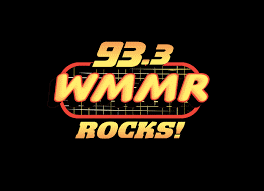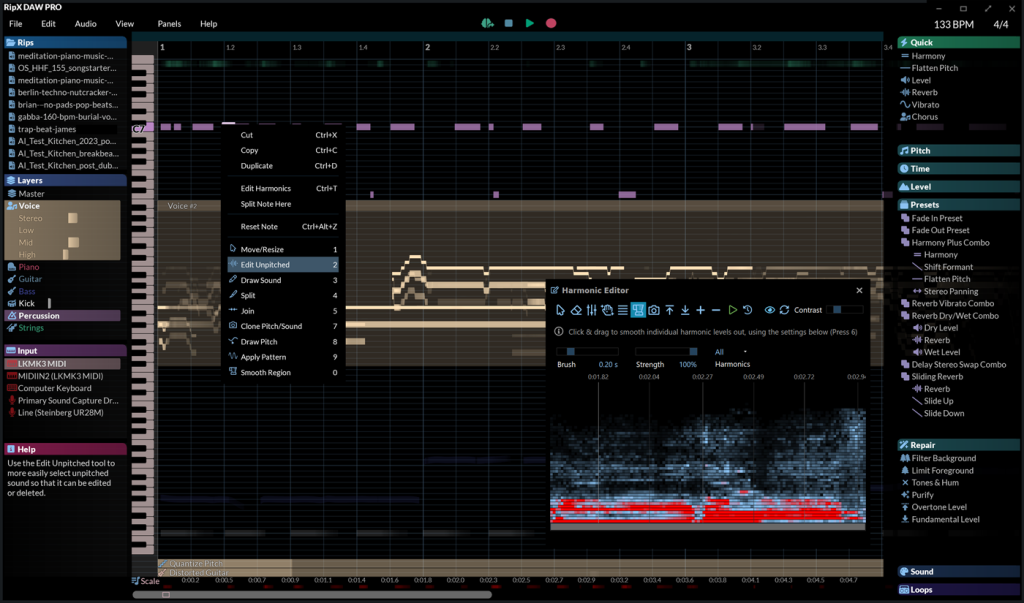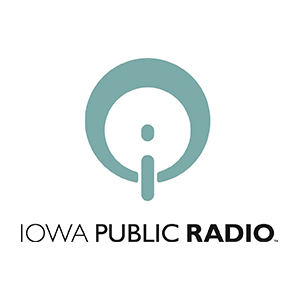Phil Maass
– Cleaning Up The Radio –
An interview with local radio producer Phil Maass – Iowa Public Radio
“RipX DAW’s ability to pull songs apart into stems allows me to erase words that some listeners may find offensive without taking out any of the music. In many cases, I can do it so cleanly that the average listener won’t notice.”

After a steady diet of rock music in elementary school, some older friends introduced Phil Mass to a couple of FM stations coming out of Philadelphia, PA, near where he grew up. They were WMMR and WXPN.
“Both often hosted live bands in their studios. I thought that was the greatest thing to hear live, alternate versions of songs I knew and to be able to hear how the band actually played them, as opposed to the polished recorded versions we’d all become familiar with.”


This soon led to a deeper fascination for radio.
“The DJs on those stations struck me as relaxed, confident and knowledgeable people. All of which I was not. And, they were FAMOUS! Or so I thought. They had such power and influence. The tastemakers, or should I say influencers, of their times. So, I’ve always had a love of radio. When I got to college, I worked for the college radio station. That was in Ohio in the late 70s. I discovered being on the radio did not make me cool, but I still enjoyed it.”
After a career in live sound until the mid-1990’s, Phil eventually landed a job in radio.
“I started to feel I just couldn’t work in one more dive bar for next to no money and I was always listening to and getting inspired by David Dye (WXPN) and Luke O’Reilly (WMMR). A friend soon told me there was an opening at the public radio station in Iowa where he worked. So I applied and got the job!”
Since his entry into the industry, one of Phil’s proudest achievements so far has been working on a live broadcast of a 3-day blues festival which had 2 stages and non-stop music.
“I figured out a way to be able to switch back and forth at will between the stages, even though there was a quarter mile between them. Also, we could play back acts recorded earlier in the day to fill in any downtime. I had live hosts on site. And this was back during the analog days. There was a lot of copper cable!”

As for key software he’s used over the years, Phil notes Adobe Audition, Nuendo and Izotope RX – but after trying out RipX DAW PRO, he immediately saw a variety of incredibly helpful audio tasks to use it for.
“As in a lot of countries, there are words that you can’t or shouldn’t broadcast in America (see George Carlin “7 Words You Can’t say on TV”). RipX DAW PRO’s ability to pull songs apart into stems allows me to erase words that some listeners may find offensive without taking out any of the music. In many cases, I can do it so cleanly that the average listener won’t notice, and that’s far more satisfying than a short burst of 1 kHz tone. This allows us to expand what we play and expose our listeners to new, different and potentially challenging material that they otherwise would not hear or seek out.”
He also does a lot of live recording out in the field, usually in very uncontrolled environments.
“Like most non-profits, we are very short staffed. I am often sent out by myself to cover multi-band festivals. I multitrack these festivals and I try to record a stereo back-up as well. I work under very tight change-over times between bands. I don’t have the luxury of having additional staff making sure that everything is working as it should. Sometimes I miss things. At a recent festival, I didn’t see that the kick drum channel wasn’t recording for the first half hour of a band’s 90 minute set. RipX DeepAudio was able to, again, give me stems from the stereo back up, including just the kick drum, allowing me to make the first half hour of the set usable. Is it perfect? No, but will listeners be able to tell? I don’t think so. But they will get to hear and enjoy that part of the band’s set.”

So what are Phil’s views on the future of radio and music technology in general?
“It’s hard to tell. Here at Iowa Public Radio we find that we’re having to provide audio, and even video, on many platforms to try to get to the listeners where they live. We’re more of a multi-media organization that also runs several terrestrial radio stations. Iowa is very rural and so internet connections out in the country are still not the best. I believe there will be a need for actual radio for many years to come. I believe that the delivery methods may change. As for music technology – faster, better, cleaner and maybe cheaper. Although, if there was a resurgence of analog, I’d be able to sell the pile of equipment in my basement!”
Any advice for those starting out in radio or music?
“You won’t make much money unless you develop a product that everyone can’t live without. So you won’t get rich. You’ll work long hours and not get much credit. But, man will you have stories.”
Listen to Iowa Public Radio HERE.
